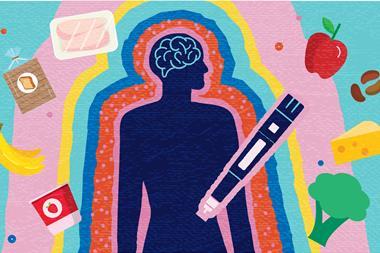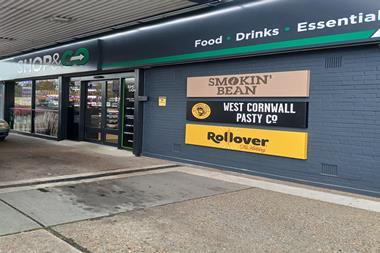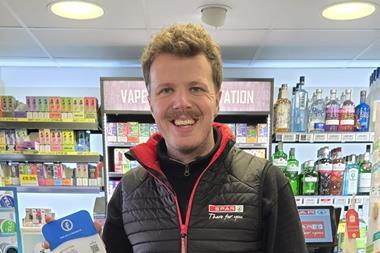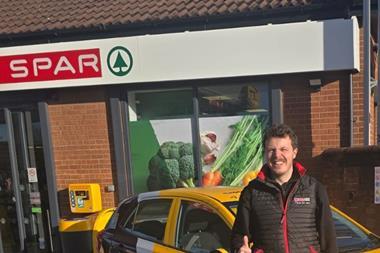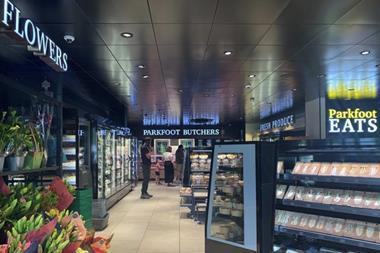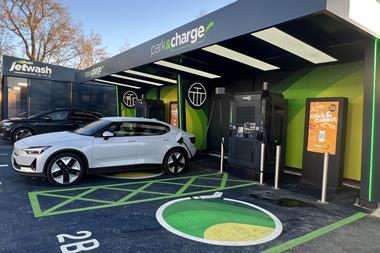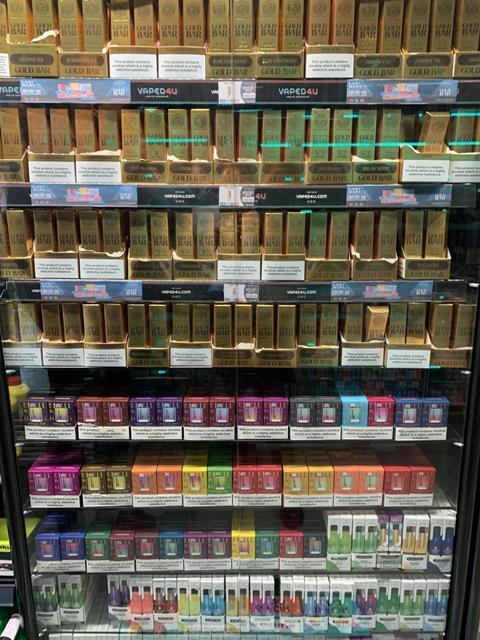
* Ban on disposable vapes, which have been blamed for driving “an alarming rise in youth vaping”.
* New powers to restrict refillable vape flavours, introduce plain packaging and change how vapes are displayed in-store so they do not appeal to children.
* New on the spot fines for shops in England and Wales that sell vapes illegally to children, on top of the £2,500 fine that local authorities can already impose.
* Addictive vaping alternatives – such as nicotine pouches – will also be outlawed for children.
Forecourt retailers warn that the ban on disposable vapes announced today could boost the black market for unregulated devices, simply driving the problem underground.
Outlawing disposable products outright, part of a swathe of changes aimed at restricting the vaping category announced by Prime Minister Rishi Sunak, is a response to a consultation on the health and environmental impacts of smoking and vaping, launched in October.
The package includes new powers to restrict flavours specifically marketed at children and to ensure that manufacturers produce plainer, less visually appealing packaging. The measures will also allow government to change how vapes are displayed in shops, moving them out of sight of children and away from products that appeal to them like sweets.
To crack down on underage sales, the government will also bring in new fines for shops in England and Wales that sell vapes illegally to children. Trading standards officers will be empowered to act on the spot to tackle underage tobacco and vape sales. This builds on a maximum £2,500 fine that local authorities can already impose.
The Department of Health and Social Care says it intends to bring in laws as soon as possible. “Any legislation taken forward will allow for an implementation period of at least six months, which takes into consideration concerns that businesses will require time to adapt,” it says.
The biggest potential impact for forecourt retailers is the ban on disposables. They account for most of the category and sales often outpace tobacco.
Guy White, managing director of The Laurels Group which owns Laurels Service Station in Horncastle, Licolnshire, says he feels “conflicted”.
On the one hand, his Spar shop sells twice as many disposable vapes than tobacco products, and the margins are much higher than traditional cigarettes. However, he recognises the problem of under-age use which the government is trying to address.
He believes that a better solution would be a licensing system similar to that for businesses selling alcohol.
“I think there is so much fake product out there that a ban on disposable vapes would drive sales underground. What there needs to be is licensing for vapes. And if a retailer is found selling to an under-age customer they lose the right to sell these items,” says Guy.
“The forecourt sector is already very very responsible, because 90% of the time fuel companies make them as responsible as they can be. You have to be a responsible retailer to be involved in fuel. I think our sector is very good. We sell TPD compliant products, we challenge 25 and recycle. The compliance people need to look at stores on Grimsby or Boston high streets.”
Guy will reserve making buying decisions on disposables until the government plans are clearer. He is not concerned about being left with unsold stock and believes, if anything, the sector will see a rush on disposable vapes when the date for the ban is announced, and when it is introduced he predicts an uplift in nicotine pouch sales.
Goran Raven, who also gets more sales from disposables than tobacco products at his Raven’s Budgens store in Abridge in Essex, also believes that a total ban on disposables will fuel the black market. “I was talking to contractors this morning about the ban, and one said ‘I don’t mind, I buy mine from under the counter anyway’,” he says.
“Regulation would be good providing there is not too much red tape around it. If it is done well it would be sensible, but if there are too many hurdles that will not be good for anyone,” he says.
He has put on hold thoughts of buying a vape vending machine at a cost of over £8,000. “I thought there might be regulation, but not a ban. The market has moved completely from tobacco to vape which now takes 60% of sales for us, and 85% of that comes from disposables,” he says.
Imperial Brands, responsible for the blu vaping brand, says it is concerned about the likely impact of removing disposable vapes, the most widely used tobacco harm reduction alternative in the UK, with more than half of adult vapers, and believes a ban threatens to undermine significant progress to reduce smoking.
Its general manager UK & Ireland, Oliver Kutz, says: “Not only will this reduce the accessibility of vaping products to adults seeking to quit smoking, but it will also fuel the illegal trade of unregulated products, already a sizeable problem for enforcement authorities.”
However, he says that the supplier has long called for called for action to prevent the deliberate marketing of vaping products to young people.
“We are therefore pleased that the Government will act on issues such as vape flavour names, packaging, retail display, and penalties for those selling to under 18s, and we look forward to reviewing the details of the Bill when it is published.”
The Department of Health and Social Care defends the measures, pointing to recent figures that show the number of children using vapes in the past three years has tripled. Use among younger children is also rising, with 9% of 11 to 15-year-olds now using vapes, it says. The long-term health impacts of vaping are unknown and the nicotine contained within them can be highly addictive, with withdrawal sometimes causing anxiety, trouble concentrating and headaches. While vaping can play a role in helping adult smokers to quit, children should never vape, it says.
Disposable vapes have been a key driver behind the alarming rise in youth vaping, with the proportion of 11 to 17-year-old vapers using disposables increasing almost ninefold in the past two years.
The government has again reiterated its commitment to bring about the first smokefree generation and introduce legislation so children turning 15 this year - and those born in subsequent years - can never legally be sold tobacco.
Announcing the moves today, Sunak said: “As any parent or teacher knows, one of the most worrying trends at the moment is the rise in vaping among children, and so we must act before it becomes endemic.”























